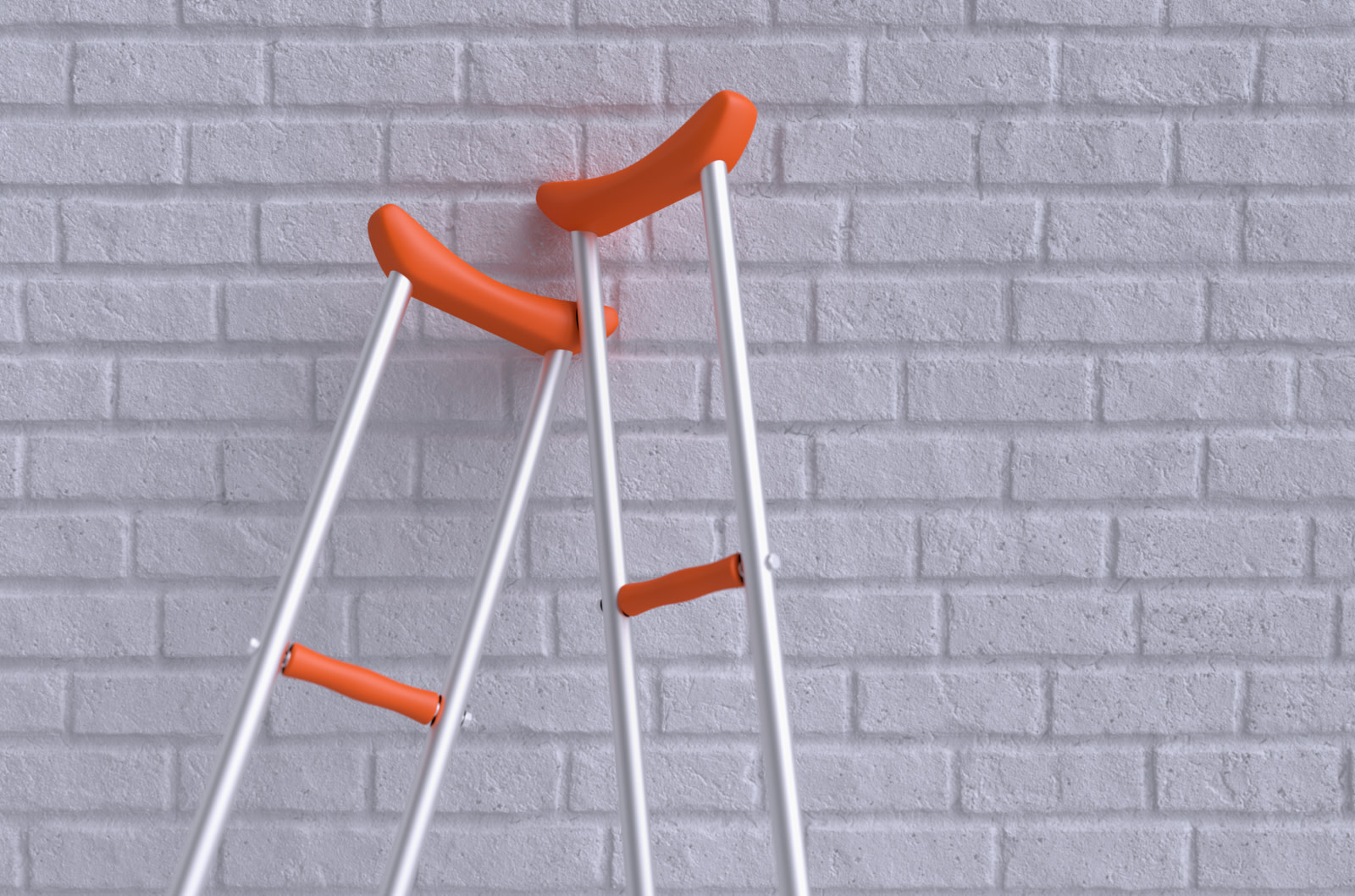May 2, 2018
Choosing MedPay, Personal Injury Protection and Uninsured Motorist coverages
In Part 1 and 2 of this series, we explained Liability, Collision and Comprehensive coverages in jargon-free English. As a quick overview, Liability covers the other person and their property, if you cause an accident, while Collision and Comprehensive cover damages to your car from pretty much any incident imaginable.
But what happens if you or your passengers get hurt in an accident? Medical costs can add up quickly, especially when you’re worried about medical expenses for the other people in your car, too. What car insurance coverages should you get to help pay for those medical costs and your bills?
In Part 3, we’re going to talk about Medical Payments, Personal Injury Protection and Uninsured/Underinsured Motorist Bodily Injury coverages.

What is Personal Injury Protection coverage?
If you live in a no-fault state, this coverage is required by law. If you don’t live in a no-fault state, Personal Injury Protection (PIP) may or may not be offered, depending on your state and insurance carrier.
PIP pays for any medical expenses you or your passengers incur as the result of an accident, regardless of who caused it. It covers expenses like hospital stays, surgery, doctor visits, and even lost wages, and funeral expenses.
It’s important to note that if you’re in an accident someone else causes, your PIP will still pay out first, before their Liability does. You won’t have to wait for fault to be established before getting your medical expenses covered. If your expenses go beyond your PIP coverage, the other person’s Liability coverage kicks in.
But some states give you the option for a lower rate, if you decline your right to sue or be sued over an accident. If you choose that option, remember that the other person's Liability coverage will not pay for any additional expenses after your PIP coverage runs out.
What is Medical Payments coverage?
Medical Payments (MedPay) covers any medical expenses you or your family members incur in an accident, regardless of who caused it.
The major difference between PIP and MedPay is that MedPay is not usually required by law.
Most importantly, MedPay covers you if you cause an accident and you or your family members are hurt. Without it, you could be paying for those expenses out of your own pocket. MedPay covers things like ambulance rides, hospital stays, surgery, X-rays, and funeral expenses.
MedPay can be useful in another way. In some cases, this type of car insurance coverage actually follows the policyholder. So, if you get hurt riding your bike or crossing the street, you’d be covered by your MedPay.
Keep in mind that MedPay doesn’t cover all of the same things as PIP.
Is MedPay coverage required?
Only Maine and New Hampshire require MedPay coverage. So, if you live in those states, you have to have it.
What is Uninsured/Underinsured Motorist Bodily Injury coverage?
Uninsured/Underinsured Motorist Bodily Injury (UM/UIM) is used specifically when the other person is at fault for an accident, and they are either uninsured—although that is illegal—or underinsured. When someone is underinsured, it means their Bodily Injury coverage limits are too low to pay your medical expenses.
UM/UIM is optional coverage, so whether you get it depends on how much you want to pay for your insurance and how comfortable you are with potentially covering your expenses, if you found yourself in this situation.
If you have PIP coverage, it would pay your expenses from an accident caused by an uninsured or underinsured driver. UM/UIM would be supplemental in that case, if your expenses went above your PIP limits.
If you don’t have PIP or MedPay, UM/UIM can help ensure you’re covered, if you are injured by an uninsured or underinsured driver. One-in-seven drivers on the road are uninsured, so while it’s frustrating to pay for extra insurance to cover those who illegally drive without any, at least you’ll know you’re covered.
You might see UM/UIM offered together or separately as UM and UIM. It depends on your state and what it requires.
How much MedPay, PIP, and UM/UIM is enough?
Again, it depends on your situation—how much risk are you comfortable with, and what you are able to pay for your car insurance?
When you choose your MedPay, PIP, and UM/UIM coverages, you also choose limits, or the maximum amount your insurance will pay when these coverages kick in.
For MedPay and PIP, this is the amount your insurance carrier will pay out to cover any injuries per person. For UM/UIM, you'll pick the maximum amount your insurer will pay per person, as well as a max they'll pay per incident. This is the same way Liability limits work. If the costs go beyond the limits you choose, you might end up paying the extra costs yourself.
You can choose to either pay a higher insurance rate to guarantee more coverage in the case of an accident, or you can pay a lower insurance rate, if you’re okay with having less coverage.
Remember that some no-fault states do offer a deductible for PIP. In those cases, you would select both a deductible—the amount you pay before your insurer covers the rest—as well as a limit.
When does health insurance cover your injuries?
Health insurance is another important factor to consider when choosing your car insurance coverages.
If you have health insurance, it could cover injuries from a car accident. But it might not, so you should check your health plan to be sure.
If you have health insurance and it covers injuries from a car accident, there are still a few things you should consider. For example, how high is your deductible? Having MedPay, PIP, or UM/UIM could save you from paying for a high health insurance deductible in the case of an accident. That’s because these coverages pay out first. In that case, you would only need to use your health insurance, if your expenses exceed your limits.
You should also remember that your health insurance only covers you. Without MedPay, PIP, or UM/UIM, it’s possible you could be responsible for paying the medical expenses of your passengers after an accident.
So, while your health insurance might cover your medical costs from an accident, be sure to consider all the factors when deciding whether MedPay, PIP, or UM/UIM are necessary.
Are these coverages right for you?
This is a lot of information, but we hope this breakdown helps you decide what kinds of coverage best meet your needs—without as much stress.
And to make choosing your coverage faster and easier, our Root Insurance app lets you know what’s required or optional in your state before you choose. What’s more, the Root app lets you quickly compare how selecting different limits for these coverages changes your insurance rate, so you can choose the MedPay, PIP or UM/UIM coverages you’re comfortable with, at a rate that makes sense for you.
Ready to move on and learn more? Head over to Part 4, the last entry in this series, where we’ll wrap up our car insurance coverage primer by breaking down Rental coverage and Roadside Assistance.
Related Posts

November 25, 2019
Can credit score impact your car insurance rate?
If you’re having trouble getting an affordable rate on insurance it might be your credit score. Traditional insurance companies use it to determine your rate. Read more

February 19, 2020
Car insurance for college students
Some insurance carriers charge young drivers more for insurance because of their age. Here’s what parents and students should know about having a car on campus, insuring it, and having car insurance during school and after graduation. Read more

October 04, 2019
Car insurance for teen drivers
Finding cheap insurance for teens is hard. Most traditional car insurance companies charge extremely high rates. But at Root, we use mobile technology through our app to base rates primarily on driving behavior—and that applies to teens, too. Read more